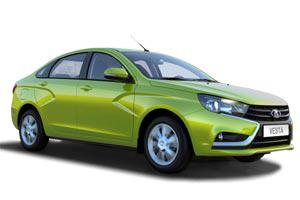Fri, 03 May 2024
Compare Hyundai i20 (2008-2012) 1.2 and Ford Fiesta 2017 1.1 Ti-VCT 3door
Technical specifications
| Clear list | Hyundai i20 (2008-2012) | Ford Fiesta 2017 |
| Totals | Hyundai i20 (2008-2012) 1.2 × | Ford Fiesta 2017 1.1 Ti-VCT 3door × |
| Mark | Hyundai | Ford |
| Model | i20 (2008-2012) 1.2 | Fiesta 2017 1.1 Ti-VCT 3door |
| Year | 2008-2012 | 2017 |
| Number of doors/seats | 5/5 | 3/5 |
| Body type | Hatch | Hatch |
| Unladen Weight | 970 | 1108 |
| Gross Weight Limit | - | 1615 |
| Top Speed, km/h | 165 | 170 |
| Acceleration 0-100 kph | 12.9 | 13.9 |
| Minimum turning radius, m | - | 5 |
| Cargo Volume, min/max, L | 295 | 292/1093 |
| Dimensions specifications, mm | Hyundai i20 (2008-2012) 1.2 × | Ford Fiesta 2017 1.1 Ti-VCT 3door × |
| Length | 3940 | 4040 |
| Width | 1710 | 1735 |
| Height | 1490 | 1476 |
| Wheelbase | 2525 | 2493 |
| Front/rear Track | 1505/1503 | 1513/1476 |
| Ground clearance | 150 | 140 |
| Engine specifications | Hyundai i20 (2008-2012) 1.2 × | Ford Fiesta 2017 1.1 Ti-VCT 3door × |
| Type | petrol Injection | petrol Injection |
| Displacement, cm3 | 1248 | 1084 |
| Compression ratio | 10.5 | 12 |
| Number and arrangement of cylinders | 4 cylinders, in-line | 3 cylinders, in-line |
| The diameter of the cylinder x stroke, mm | 71х78.8 | 73x86.3 |
| Number of valves | 16 | 12 |
| Power, hp/rpm | 78/6000 | 85/6300 |
| Max torque, Nm/RPM | 119/4000 | 110/3500 |
| Transmission specifications | Hyundai i20 (2008-2012) 1.2 × | Ford Fiesta 2017 1.1 Ti-VCT 3door × |
| Gearbox | 5-speed manual | 5-speed manual |
| Drive Type | Front wheel drive | Front wheel drive |
| Suspension specifications | Hyundai i20 (2008-2012) 1.2 × | Ford Fiesta 2017 1.1 Ti-VCT 3door × |
| Front | MacPherson strut | MacPherson strut |
| Rear | Dependent suspensions | Dependent suspensions |
| Tire Size | 175/70/14, 185/60/15 | 195/60 R15 |
| Disk | 4x100 ET46 d54.1
| 4x108 ET37 d63.3
|
| Brakes specifications | Hyundai i20 (2008-2012) 1.2 × | Ford Fiesta 2017 1.1 Ti-VCT 3door × |
| Front | Ventilated discs | Ventilated discs |
| Rear | Discs | Drums |
| Fuel consumption specifications, L/100 km | Hyundai i20 (2008-2012) 1.2 × | Ford Fiesta 2017 1.1 Ti-VCT 3door × |
| City | 6.5 | 6 |
| Highway | 4.5 | 3.9 |
| Combined | 5.2 | 4.7 |
| Fuel | 95 | 95 |
| Tank, L | 45 | 42 |
| Clear list | Hyundai i20 (2008-2012) | Ford Fiesta 2017 |













